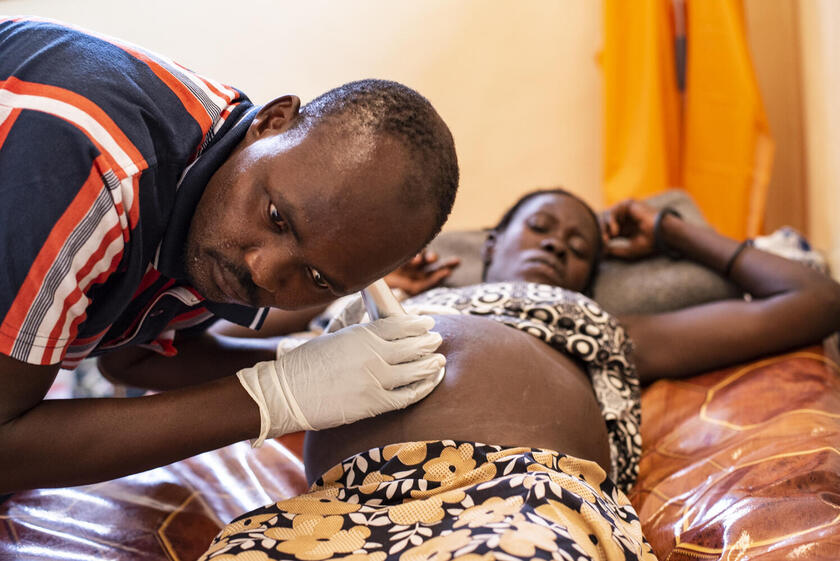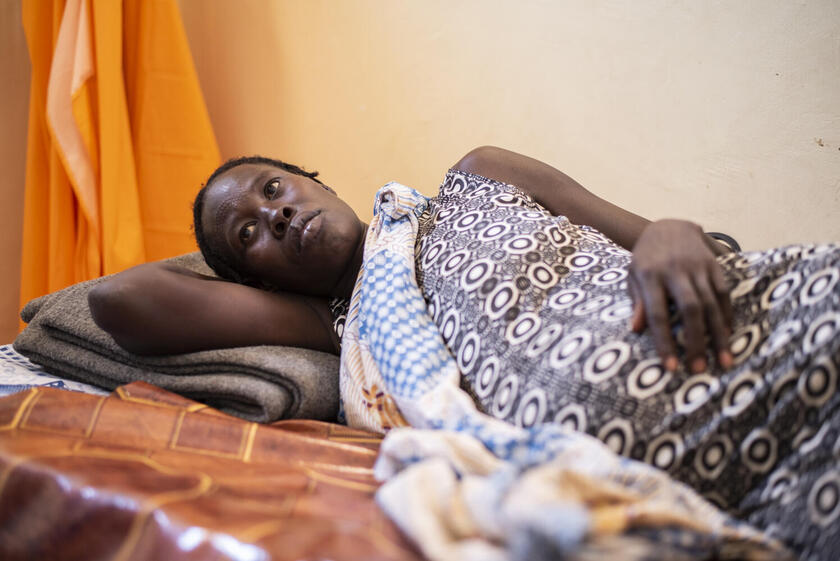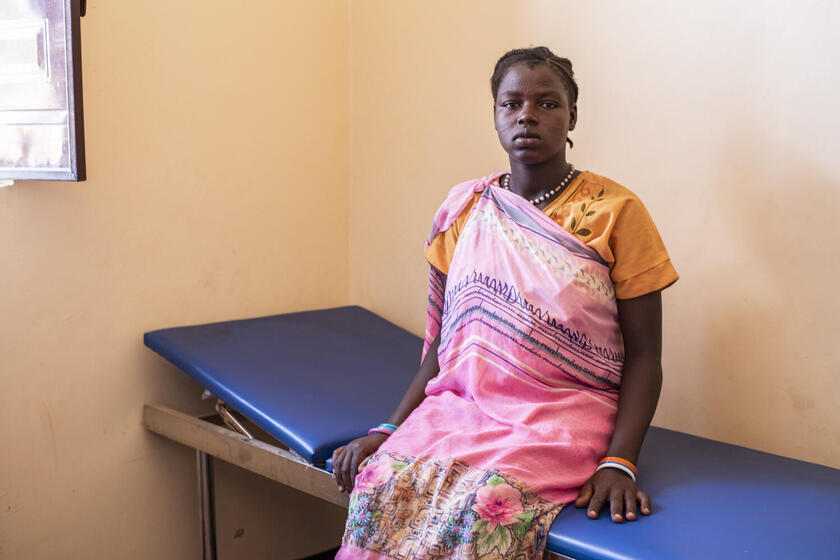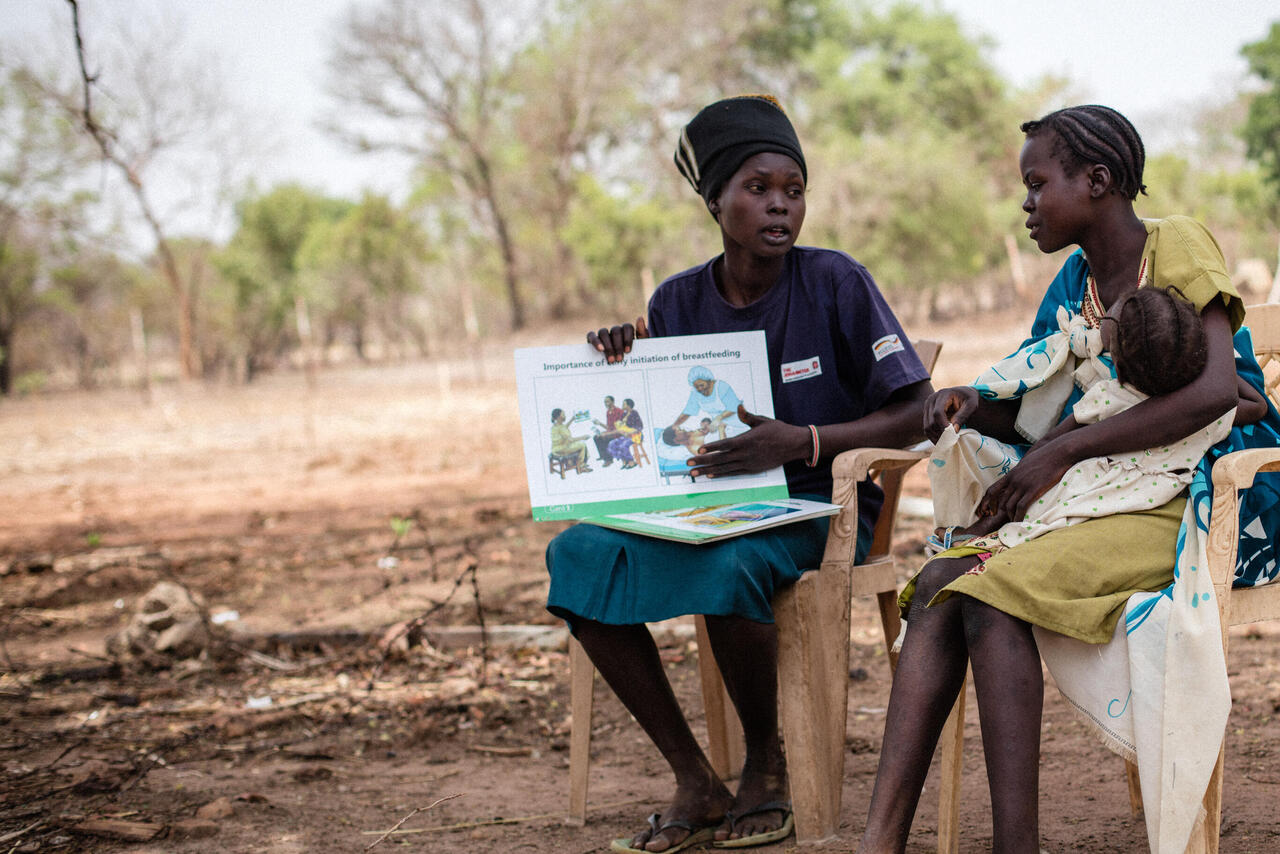South Sudan: Step-by-step improvement of birth attendance
Berlin / Kangi, 03 November 2020
In 2017, Johanniter started the construction of a maternity ward in the village of Kangi in South Sudan. With the financial support of the Swiss Commandery, it was equipped and completed in 2018 to provide women with better medical care. The reason: The risk of a pregnant woman dying is as high as one in seven. In many places there is a lack of qualified personnel and functioning health care facilities.
In September 2020, the first project cycle was completed and a balance was drawn up. Since 2017, 589 women have been professionally supported and cared for by four qualified midwives and two community midwives in Kangi. In addition, 1,763 children have been vaccinated to protect them from preventable diseases. The number of women who regularly come to the maternity ward for preventive medical check-ups has also increased steadily over the past three years. Among other things, these are important to ensure that women at risk of complications during child birth are identified early and referred to Wau Teaching Hospital to save both the mother and the unborn child.

Small step towards the big goal
"Unfortunately, we are still a long way from that, The South Sudan current statistics shows that only 20% of births are attended by skilled assistants", summarises Charles Okidi, Head of Mission of Johanniter in South Sudan.
Although we were able to increase the share of improved skilled delivery from 23 to 35 percent in Kangi, we still do not reach many women.
The health station of Kangi covers a wide area. Due to the lack of infrastructure, distances of more than five kilometres to the station are unbearable for many women.
Follow-up project for greater range
In addition, cultural norms and a lack of knowledge are partly responsible for the fact that the country has had one of the highest maternal mortality rates in the world for years. Girls marry and become pregnant at an early age, although their bodies are far from being ready for it. "A change in behaviour and awareness for a healthy lifestyle requires a lot of time and constant education," says Okidi, who has been working for Johanniter in South Sudan for four years. Therefore, a eight-month project extension started in October. Health workers and community-based midwives will be trained and motivated over the coming months to communicate the benefits of assisted births and to assist pregnant women even in remote areas.
"It’s my 10th pregnancy, and it’s the first time I will deliver outside of home."

Abuk Uchalla is 30 years old. She has 10 children. It’s the first time she is giving birth in maternity. Before, she used to give birth at home, because there was no health facility around here village - Kayango (four hours walk from the Kangi).
She first came to the Johanniter facility for the ANC and was checked for anaemia. During her last pregnancy, she lost her child and she had to go to get some support from the Wau Teaching Hospital. A month ago, she decided to move to Kangi, to stay at a relative until she gives birth. Her husband stayed with her in Kangi until the day before, but he had to return home. They recently agreed with her husband it would be her last baby. She is planning to attend a family planning consultation. During the consultations, the health staff will discuss non-invasive and invasive methods of family planning with her.
"I wish this service could be accessible to more remote locations in South-Sudan."

Adum Okelo is 19 years old and it’s the first time she is pregnant. She is a housewife and she lives with her husband. Her husband is a farmer and he cultivates sorghum, groundnuts, maize and sesame. She is coming to the ANC (Ante Natal Care) counselling.
She heard about the facility as she was always seeing pregnant women gathering in front of the hospital, so she decided to come and see what service they propose. As the service is free, she can enjoy it, and she is happy. If the maternity ward was not here, she would try to go to Wau (2 hours by public means), if her husband could afford. She thanks Johanniter for the support, and she wishes this service could be accessible to more remote Payam.
